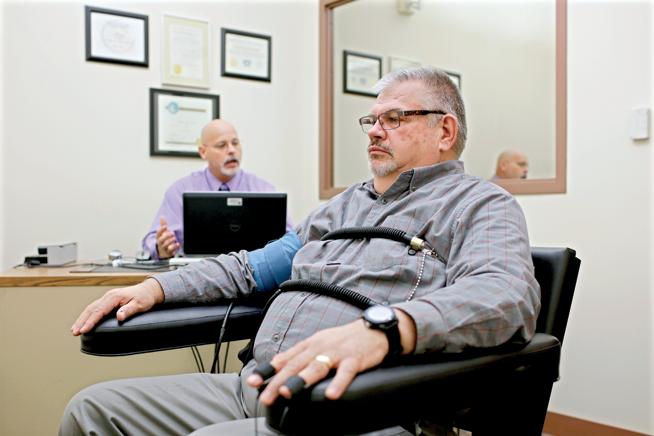
Unmasking the Truth: The Power of Lie Detector Tests

In a world where truth is often obscured by deception, the lie detector test stands as a powerful tool in unraveling the tangled web of deceit. For decades, this technology has captured the imagination of society, sparking debates about its accuracy and reliability. The mere mention of a lie detector test conjures images of tense interrogation rooms, heart rates racing, and the quest to unearth the ultimate truth.
The essence of the lie detector test lies in its ability to measure physiological responses that accompany the telling of a lie. From fluctuations in heart rate to changes in sweat production, these subtle manifestations serve as clues to expose the hidden truths lying beneath the surface. As individuals are subjected to questioning under the watchful eye of this intricate machine, the quest for honesty becomes a battle of wits between human cunning and technological precision.
Polygraph
History of Lie Detector Tests
In the early 20th century, the development of the lie detector test, also known as the polygraph, revolutionized the field of forensic psychology. The first iterations of this technology focused on measuring changes in physiological responses such as blood pressure, pulse rate, and respiration when individuals were asked specific questions.
One of the key pioneers in the history of lie detector tests was John Augustus Larson, a medical student and police officer who invented the modern polygraph machine in the 1920s. Larson’s groundbreaking work laid the foundation for the technology we use today, demonstrating the connection between physiological reactions and deception.
Over the years, lie detector tests have evolved and incorporated advanced technologies to improve accuracy and reliability. Despite ongoing debates about their admissibility in court and ethical implications, lie detector tests continue to be a valuable tool in various fields, including criminal investigations, pre-employment screenings, and national security.
Accuracy and Reliability
Lie detector tests are often touted for their ability to accurately detect deception. The technology behind these tests is based on physiological responses such as heart rate, blood pressure, and skin conductivity, which are believed to change when someone is being deceptive.
Despite their widespread use in various settings such as criminal investigations and pre-employment screenings, lie detector tests have faced criticism for their reliability. Factors such as the subject’s state of mind, medical conditions, or even their belief in the test’s accuracy can all impact the results.
Overall, while lie detector tests can provide valuable insights into a person’s truthfulness, they should not be solely relied upon as definitive proof of deception. It is essential to consider additional factors and corroborating evidence before drawing conclusions based solely on a lie detector test result.
Ethical Considerations
The usage of lie detector tests raises ethical concerns regarding the invasion of privacy. Individuals may feel pressured or coerced into taking a test, leading to potential violations of their personal boundaries.
There is a debate surrounding the reliability and accuracy of lie detector tests, which can have serious consequences if used as the sole determinant of truth. False positives and negatives can occur, resulting in unfair judgments and damaging implications for individuals.
Additionally, there are disparities in the interpretation of lie detector test results, highlighting the subjective nature of the analysis. This subjectivity can introduce bias and misinterpretation, leading to unjust outcomes based on flawed assessments.

